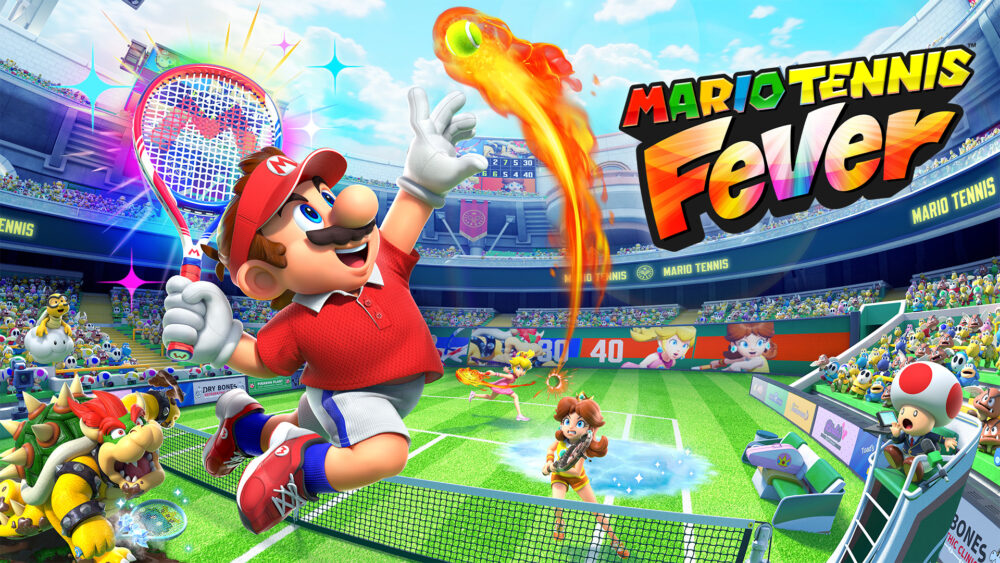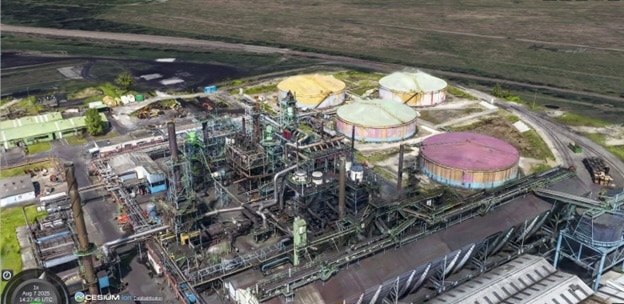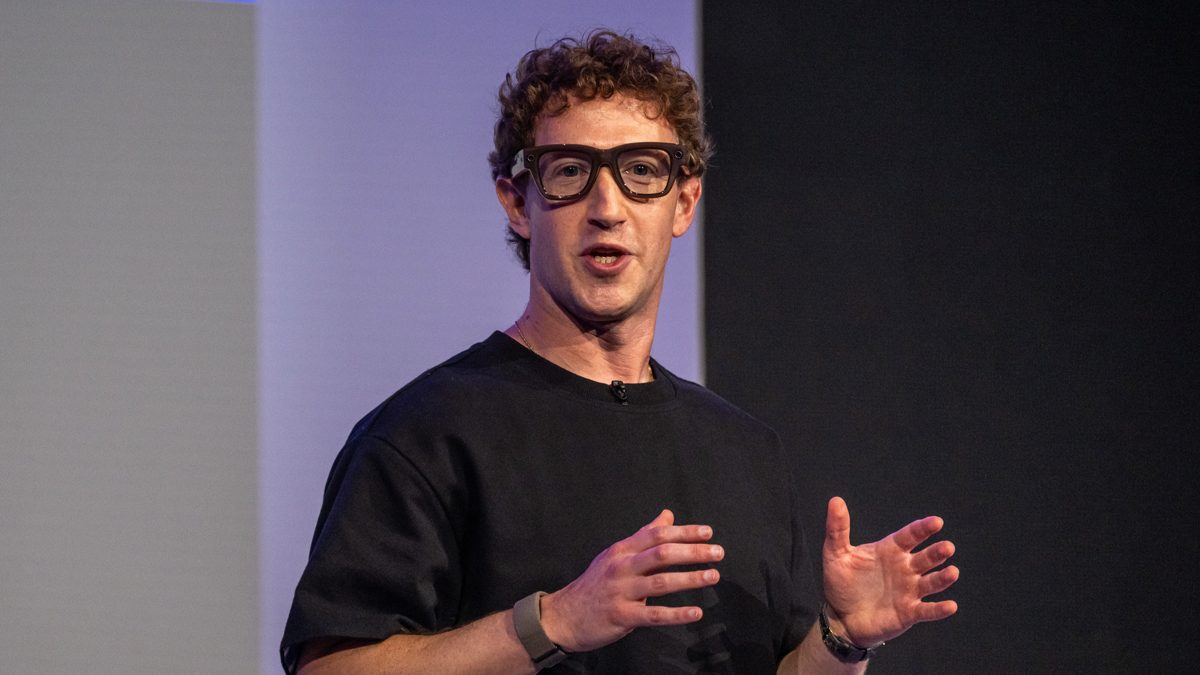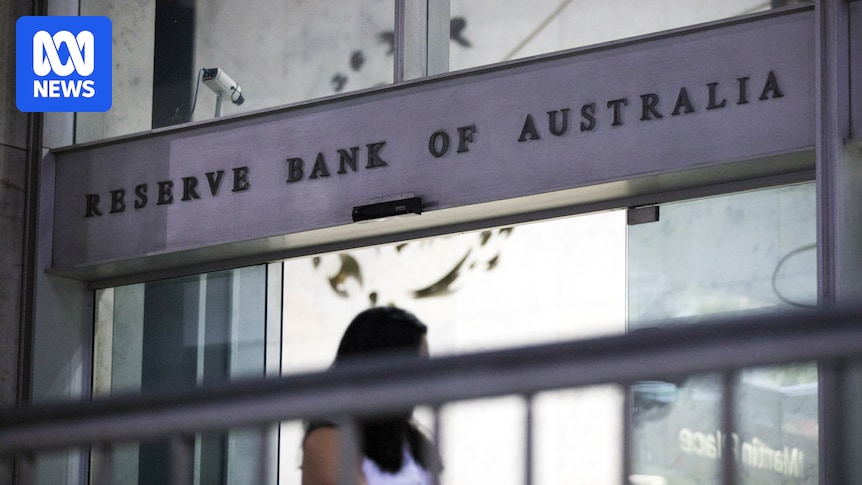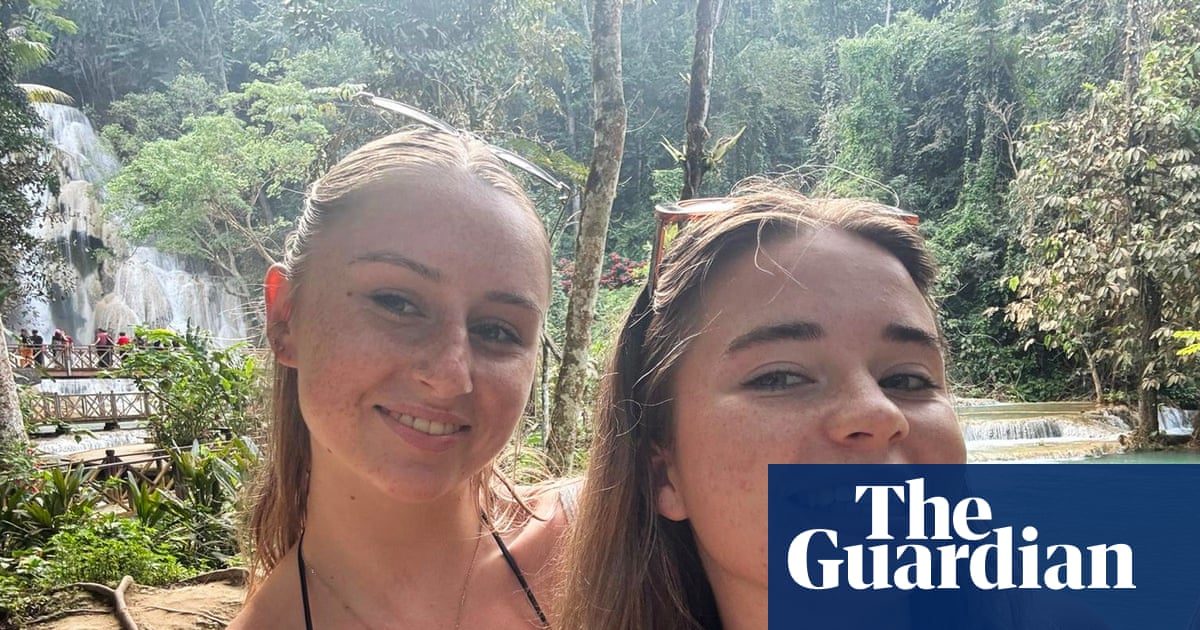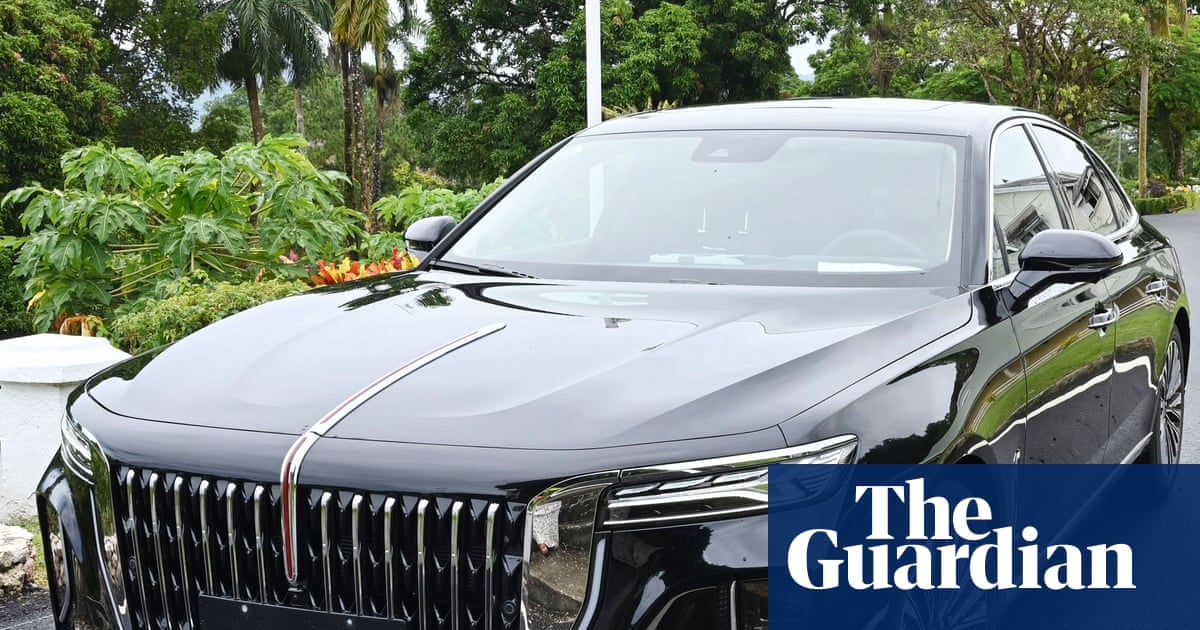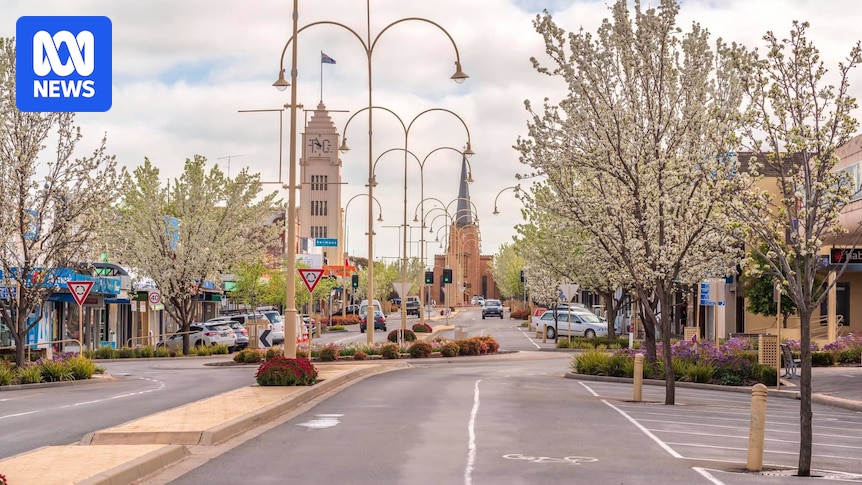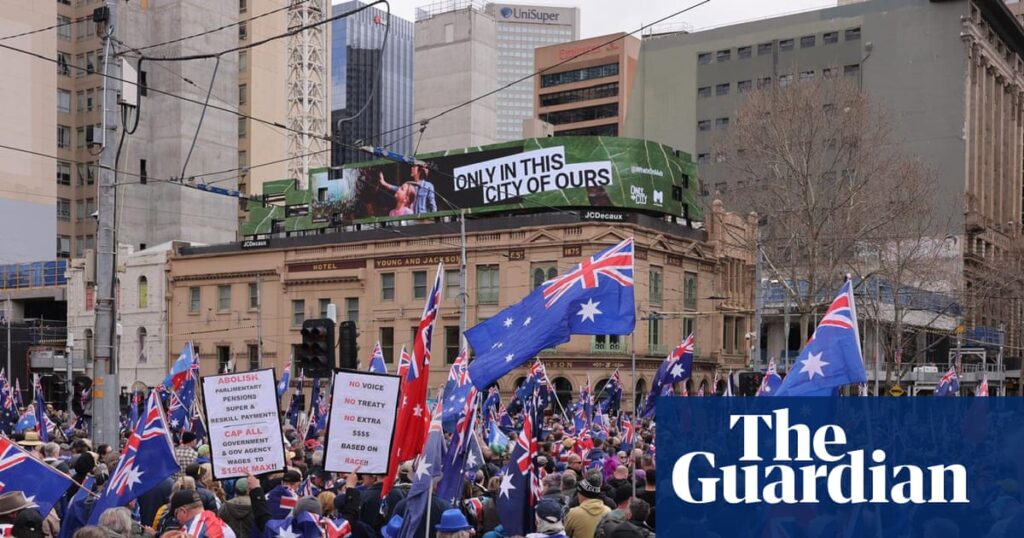
A neo-Nazi speaker was among those addressing a crowd at a highly charged anti-immigration protest in Melbourne, part of a series of demonstrations under the “March for Australia” banner held in capitals across the nation on Sunday. While the federal government condemned these rallies as acts of hate, several politicians, including One Nation leader Pauline Hanson and Senator Malcolm Roberts, attended the event in Canberra, with federal MP Bob Katter joining in Townsville.
The rallies, promoted by neo-Nazis, anti-lockdown advocates, and other fringe groups, did not have any single organization publicly claiming responsibility for their orchestration. In Melbourne, protesters gathered outside Flinders Street Station, many waving Australian flags and holding placards with anti-immigration slogans.
Counter-Protests and Police Interventions
A counter-protest formed in front of the State Library of Victoria, merging with a weekly pro-Palestine rally and an antifascist demonstration to oppose the March for Australia. Victoria Police cordoned off Flinders and Swanston streets to separate the two rallies, but they eventually converged at Collins and Elizabeth streets, with a police barrier three rows deep, including officers on horseback, standing between them.
A volatile exchange ensued, with a bottle being thrown from the anti-immigration side and an open beer can flying over the police line. Police in riot gear pushed back antifascist demonstrators, using pepper spray on approximately a dozen protesters at the front of the crowd.
Speeches and Political Reactions
The anti-immigration rally proceeded to the state parliament, where speakers, including neo-Nazi Thomas Sewell, addressed the crowd. Sewell claimed, “his men” led the march, warning, “If we do not stop immigration, then our death is certain.” Another unidentified speaker rallied the crowd with chants of “Albo must go” and “Aussie Aussie Aussie.”
Victoria’s Premier, Jacinta Allan, condemned those aligning with neo-Nazis, emphasizing the strength of multiculturalism at a multicultural gala on Saturday night. “No one who has ever tried to divide this country has ever succeeded,” she stated.
Nationwide Demonstrations and Political Reactions
In Sydney, New South Wales police deployed hundreds of officers to manage the annual marathon, a weekly pro-Palestine rally, and the anti-immigration march, all occurring simultaneously in different city parts. In Canberra, a crowd gathered near Lake Burley Griffin, waving Australian flags and chanting, with Hanson and Roberts in attendance.
A smaller counter-rally of left-wing or pro-immigrant supporters was kept separate by police. In Brisbane, a group of flag-draped protesters marched from Roma Street Parklands to the botanical gardens, facing brief confrontation from counter-protesters.
Some protesters in Brisbane and Adelaide expressed solidarity with Dezi Freeman, an alleged police killer. In Adelaide, a man held a placard with Freeman’s image during the march from Rundle Park. Freeman’s wife had earlier pleaded for his surrender, expressing sorrow over the fatal shooting of two officers.
Political and Public Reactions
Federal opposition leader Sussan Ley released a video condemning violence and racism, stating, “We cannot let hatred and fear tear at our social cohesion.” Federal Labor Minister Murray Watt also denounced the rallies, emphasizing they do not promote social harmony.
Shadow Attorney General Julian Leeser warned those attending the protests to be wary of the company they keep, expressing concern over anti-Indian and antisemitic sentiments present in some protest materials.
“There is no place for violence, racism or intimidation. Whether incited from afar or stirred up here, we cannot let hatred and fear tear at our social cohesion.” – Sussan Ley, Federal Opposition Leader
Implications and Future Outlook
The March for Australia rallies highlight ongoing tensions in Australia regarding immigration and multiculturalism. The presence of neo-Nazi figures and the involvement of political leaders in such events underscore the complexities of addressing these issues within the political sphere.
As Australia grapples with these challenges, the need for constructive dialogue and policies that promote social cohesion becomes increasingly critical. The events of this weekend serve as a reminder of the deep-seated divisions that can arise in the absence of inclusive and informed public discourse.
Moving forward, it will be essential for political leaders and community figures to engage in meaningful conversations that address the root causes of such divisive sentiments and work towards a more unified and harmonious society.
